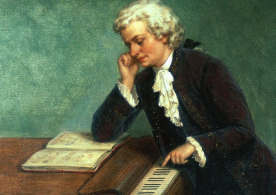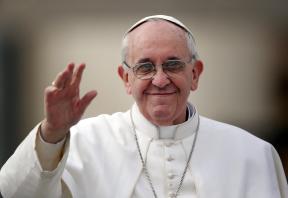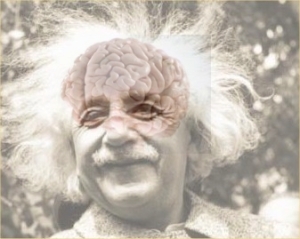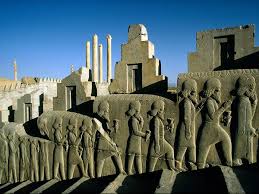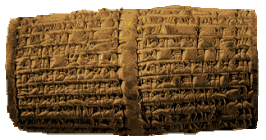“Monday Musings” for December 6, 2015
Volume V. No. 50/258
Mortal Anniversary of Mozart: The Mystery of Mozart’s Genius
By: Assad Meymandi, MD, PhD, DLFAPA*
Saturday marked the mortal anniversary of Johann Chrysostom Wolfgang Amadeus Mozart, one of the most enigmatic individuals of the 18th century. He was born on January 27, 1756. Before his death on December 5, 1791, he was in poor health. Throughout his short life, he had smallpox, tonsillitis, bronchitis, pneumonia, typhoid fever, rheumatism, gum disease, and possible cirrhosis of the liver and hepatitis all caused by excessive use of alcohol and possible sexual indiscretions. Toward the end of his life, he had poor hygiene, most likely because of poverty, and had to move a smaller apartment with limited accommodations and facilities.
Mozart was enigmatic because of ineptness, inelegant personal conduct, and his lack of social grace. Yet in his operas, he demonstrates deep understanding of human nature. He takes us through a most complex circuitous labyrinth of psychological wonders that is humanly impossible. As I listen to his operas over and over again, I keep asking myself how did he know so much? For example, his opera King of Crete, Idomeneo, set in 1200 BC, is an incredible psychological study of human possibilities, frailties, feelings and complex psychodynamics of behavior. Medical literature do refer to Mozart’s scatologia/lalia and coprophilia as symptoms of Tourette Syndrome, a neurologic disorder the victims of which experience uncontrollable urge to make foul noises and use curse words. Modern medicine has pinpointed the biochemical etiology of the disease, namely excess dopamine concentration in the basal ganglia of the brain. This condition is neuroendocrinologically the opposite of Parkinson’s disease where there is a paucity of Dopamine in the basal ganglia.
Dispensing with superlatives and avoiding the use of adjectival palates of hero-worshiping, nonetheless, an observer is made to confess that Mozart was undoubtedly a genius. Shakespeare, Goethe, Ferdowsi, Avicenna, Ibn Rushd (Averroes), there are only a handful of them…Classical music, especially Mozart’s music, like classical books, such as Virgil’s Aeneid, Homer’s Iliad and Odyssey, Plato’s Republic, Dante’s Oeuvre, have a theme, are written in noble language and are lasting across generations. All of Mozart’s 626 pieces are abundantly endowed with these basic qualities. They have a theme, they are written in noble and elegant musical notes and are transgenerational.
In his short life of 35 years, Mozart composed a known body of work, 626 pieces, of lasting elegance and complex musical intricacies, some of which are miraculous. Let’s take the summer 1788. How could anyone compose symphonies and operas in a hot summer, combating illness and mourning the death of his mother, in six short weeks, composing four master pieces of unequal elegance and sublimity? And, yet in the depth of despair and depression, he composed the glorious Jupiter Symphony in C Major K 551. It is beyond mortals. It took more than six weeks to sit down eight hours a day to just copy the music of the fabulous compositions in that hot summer of 1778 when Mozart’s was mourning the death of his mother, and processing his father’s lament and accusation that Mozart killed his mother, because of his ill behavior and leaving the nest. Reading Maynard Solomon’s biography of Mozart with focus on summer of 1778 leads one to believe in Mozart as a miracle…
There are literally billions of words written about Mozart, his life and music. In addition to Solomon’s book, I have found another respected musicologist and dramaturge, Joseph T. Kerman, Emeritus Professor of Music at the University of California, Berkeley, whose credible analysis of Mozart’s music is most enlightening. Kerman, too, has much to say about Mozart’s summer of 1788 and his final composition, Mozart’s Requiem K 626.
Readers of this space recall an essay on special children of God, we listed Mozart as follows: “Not four score and seven years before Lincoln’s Gettysburg address, but about ten thousand years ago, the age of Neolithic man, God set out to send man on the road to perfection. He sent the ancient Persian prophet, Zaratustra (Zoroaster), as early as 500 BC, to bring us the concept of good and evil which in modern day philosophy is known as epistemological dualism. The Sumerians brought us literacy and language.
The Egyptians taught us social order and government; the Persians, participatory democracy; the Greeks, city-state and citizen representation; the Babylonians gave us devotion and discipline; and Jesus came bringing us civility, hope andlove.1215 years later, the Anglo-Saxons brought us the Magna Carta. And in 1756 we were given Mozart through whom music flowed like water running through the fountains of Tivoli.”
Yes, in my view, Mozart, a flawed human was basically a divine prophet. With unparalleled beauty and sublimity, he was ordained to fulfill what Bach started with Clavier Book I and Book II. We also recall in the essay in this space on Thomas Jefferson and his fondness for music, how he arranged to meet Mozart. Jefferson had planned to ask Mozart to compose a piece in memory of Jefferson’s late beloved wife, Martha Wayles Skelton Jefferson, very much like Bach’s commissioned pieces by the Goldberg familyThe Goldberg Variations. However, Jefferson was turned off by Mozart because of his “ineptness and lack of grace… The gentleman is socially uncouth and frivolous…” Jefferson said. Yet, Jefferson loved Mozart’s “heavenly music” and travelled long distances to listen to professional performances of Mozart’s music.
Yes, Mozart belongs to the circle of Gods in the distant cosmos of tomorrows…We are thankful for having Mozart, and today, with acute awareness of the gift of Mozart, we mourn his death, but enjoy celebrating his music.
*The writer is Adjunct Professor of Psychiatry, University of North Carolina School of Medicine at Chapel Hill, Distinguished Life fellow American Psychiatric Association, Life Member, American Medical Association; Life Member, Southern Medical Association, and Founding Editor and Editor-in-Chief, Wake County Physician Magazine (1995-2012).

